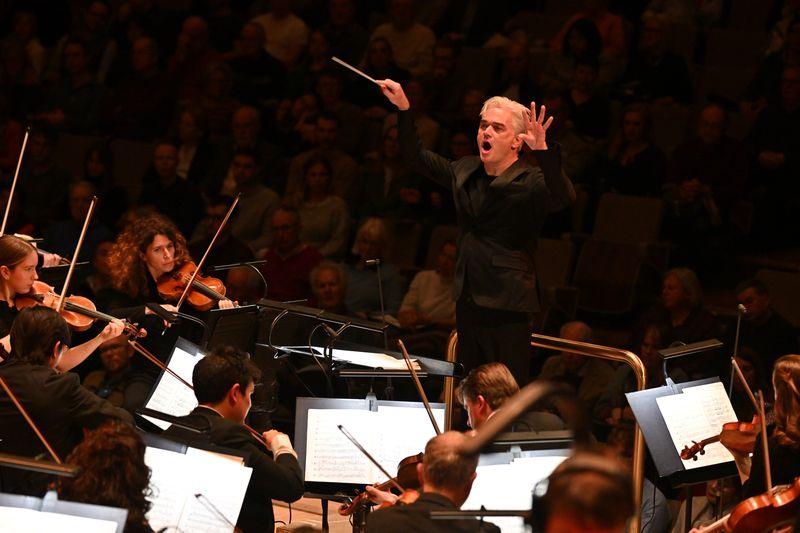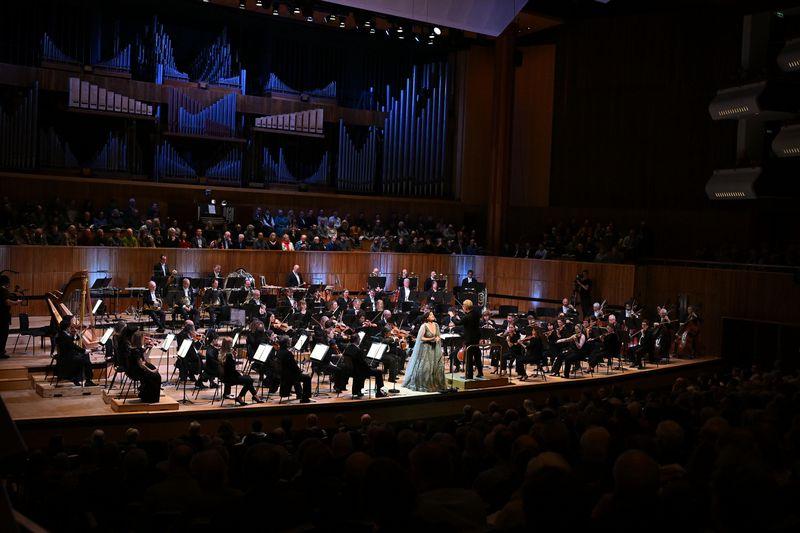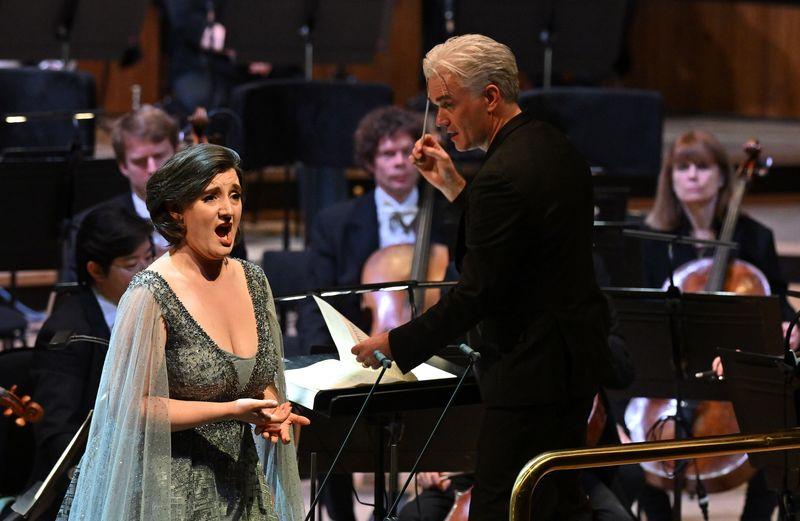Even top conductors can have difficulty with Elgar’s late romantic suppleness. Vasily Petrenko of the Royal Philharmonic Orchestra and Santtu-Mattias Rouvali of the Philharmonia have made a heavy meal out of the “Concert Overture” (= symphonic poem) In the South (Alassio). Not Edward Gardner with his London Philharmonic players, strings on top, glowing form, woodwind hyper-sensitive, in a perfectly paced journey of a soul.
Elgar took his melancholic as well as his boisterous side on holiday in Italy. Gardner’s trajectory was one of restlessness and unease eventually erupting in a vision of menacing Roman legions. We knew we’d finally arrived at serenity with Benjamin Roskans’ simple viola solo in a passage as magically hushed as the start of the final meditation on a descending scalic figure briefly heard in the midst of the opening hurly-burly. Its emphatic climax clinched a masterpiece.
Perhaps the only flaw in another, the “Enigma” Variations, is its over-assertive self-portrait finale: so much vivid bluster after all the finesse in the sketches of the “friends pictured within”, especially when as exquisitely done as here, came as an odd semi-disappointment. Gardner joined everything together, with a break only after “Nimrod” – that magnificent essay on a great, German-born friend, the publisher A J Jaeger, based not only on the main theme but also on the slow movement of Beethoven’s “Pathetique” Sonata – so much for Englishry. Its steady, natural burn from the quietest of beginnings was deeply moving, a great slow movement itself.

But other pleasures were just as well defined: the fairy-world delicacy of the ensuing intermezzo (“Dorabella”), the special space for the depiction of an 18th century house (“W, N,”), the thundering, almost Wotanesque bluster of timp-led “Troyte” (an even noisier fellow than Elgar himself in assertive mode), the perfection of violins deliciously spread to left and right of Gardner imitating piano exercises in “H. D. S-P”, collective cello sweep in “B.G.N”, above all the poignant clarinet quotation of either Mendelssohn’s Calm Sea and Prosperous Voyage or – if you take it that this is actually a reminiscence of Elgar’s youthful music-student “Braut” – the Schumann Piano Concerto against the subtle throb of an ocean liner.
All perfection in performance, like the variations themselves. It was a touching idea to preface the melancholy side of the variations with the elegy of Sospiri for strings and harp, a sad rejoinder to Mahler’s Adagietto.

Crowning the glory of an LPO on top form, Beth Taylor brought fully expressed drama – no score in front of her – to Sea Pictures. The contralto register is pure Ferrier (or even the first performer, Clara Butt), but this demanding vocal part needs total fullness at the top of the register too. Taylor has it all, a singer in a thousand, but the orchestra was an equal star: Gardner underlined the impressionist imagination of the first, second and fourth songs, while Taylor brought frissons to the more Victorian declamations of “Sabbath Morning at Sea”, a great big scena, and “The Swimmer”. Quite a team: I long to hear them in Mahler songs, as well as Gardner with the orchestra in the Elgar symphonies and Falstaff.















Add comment